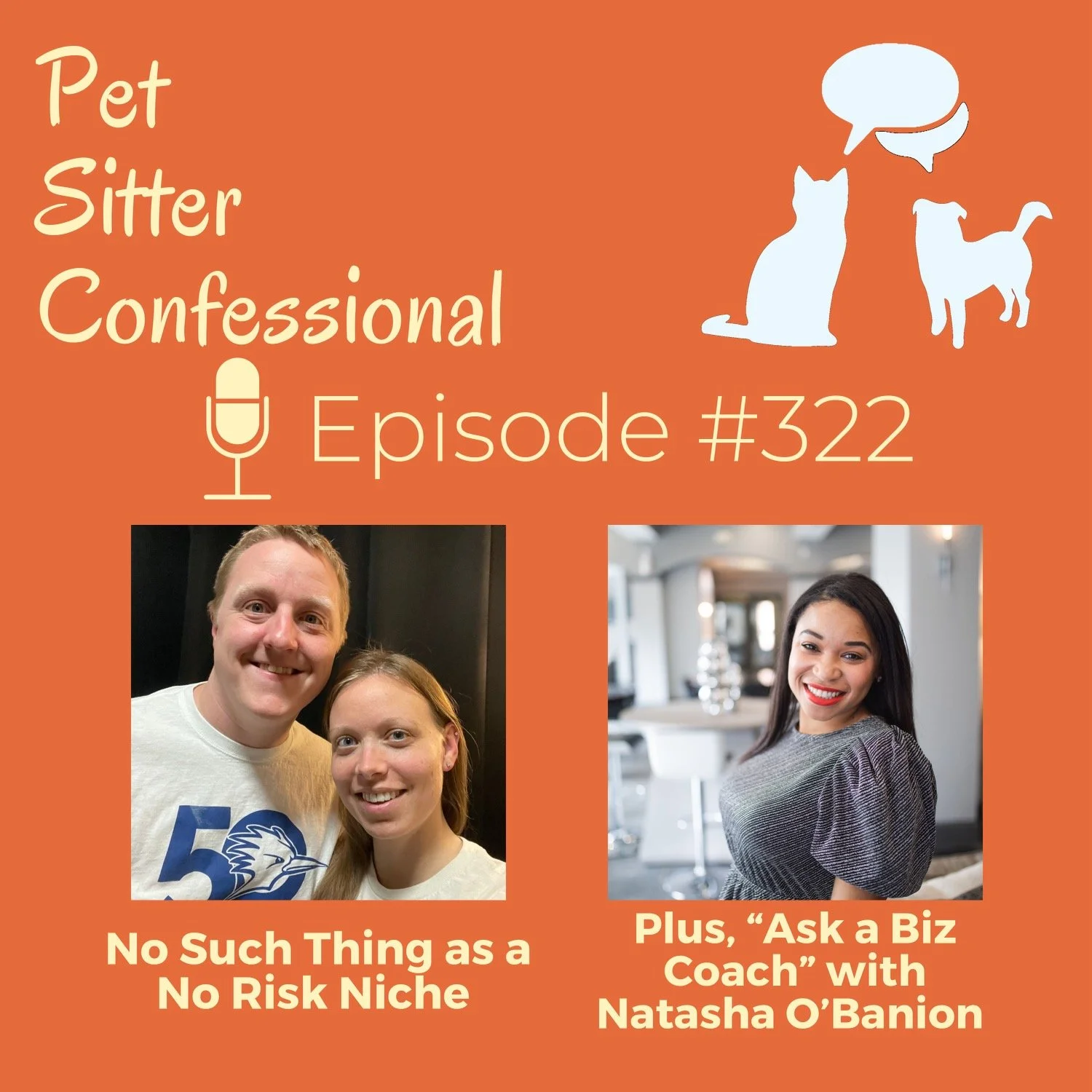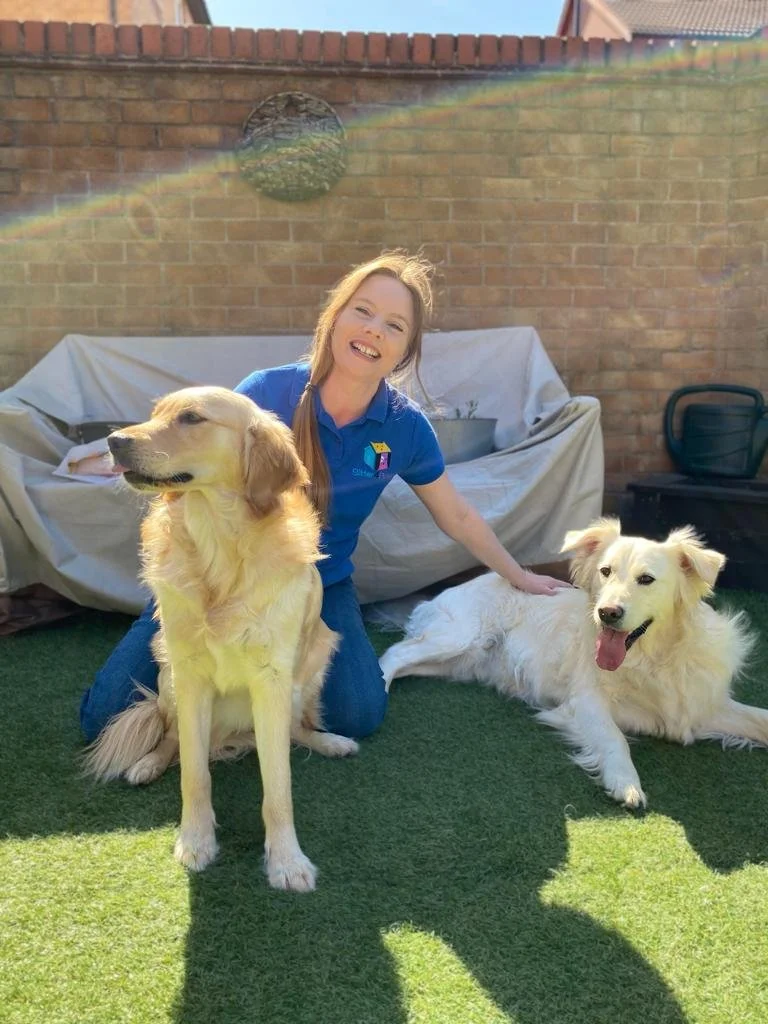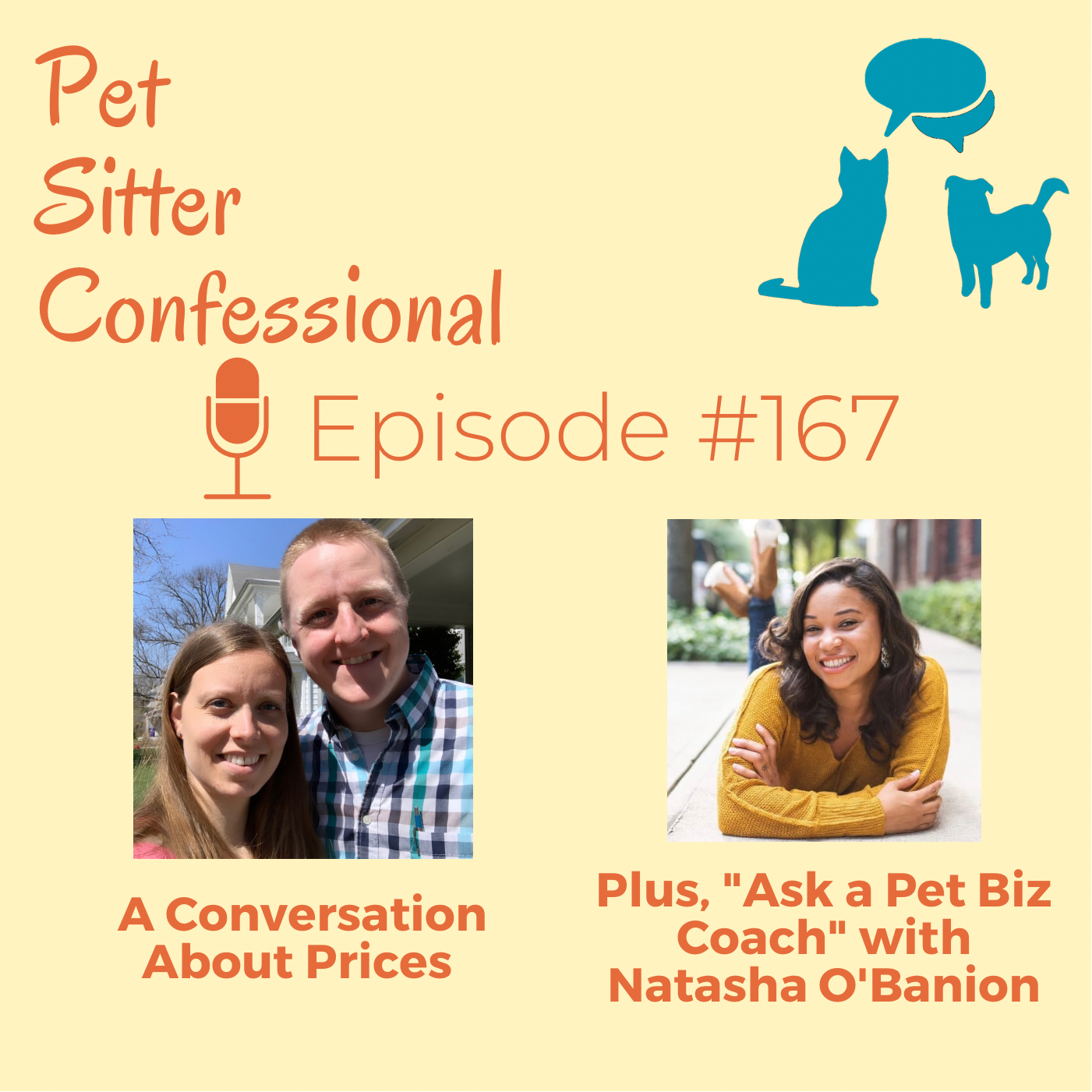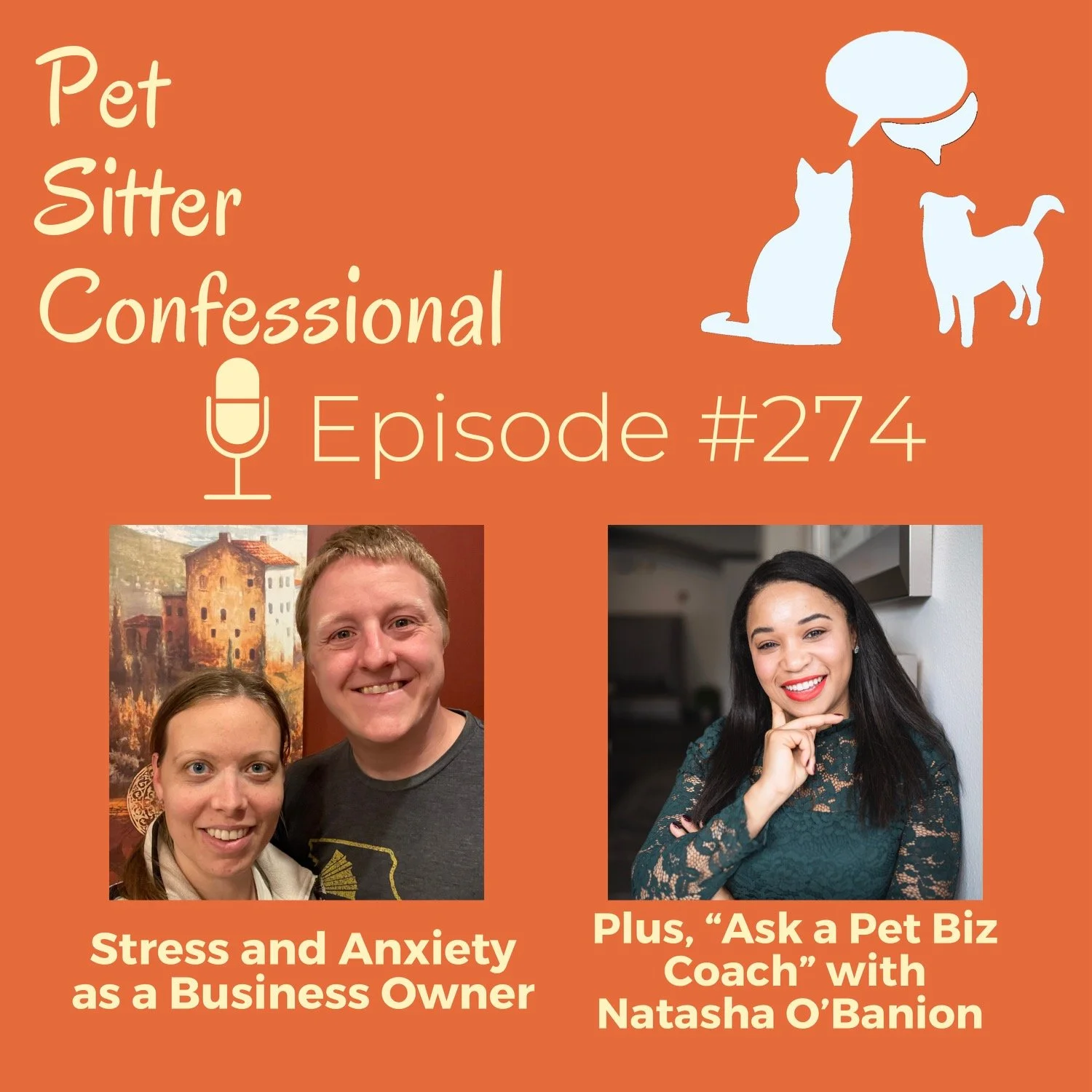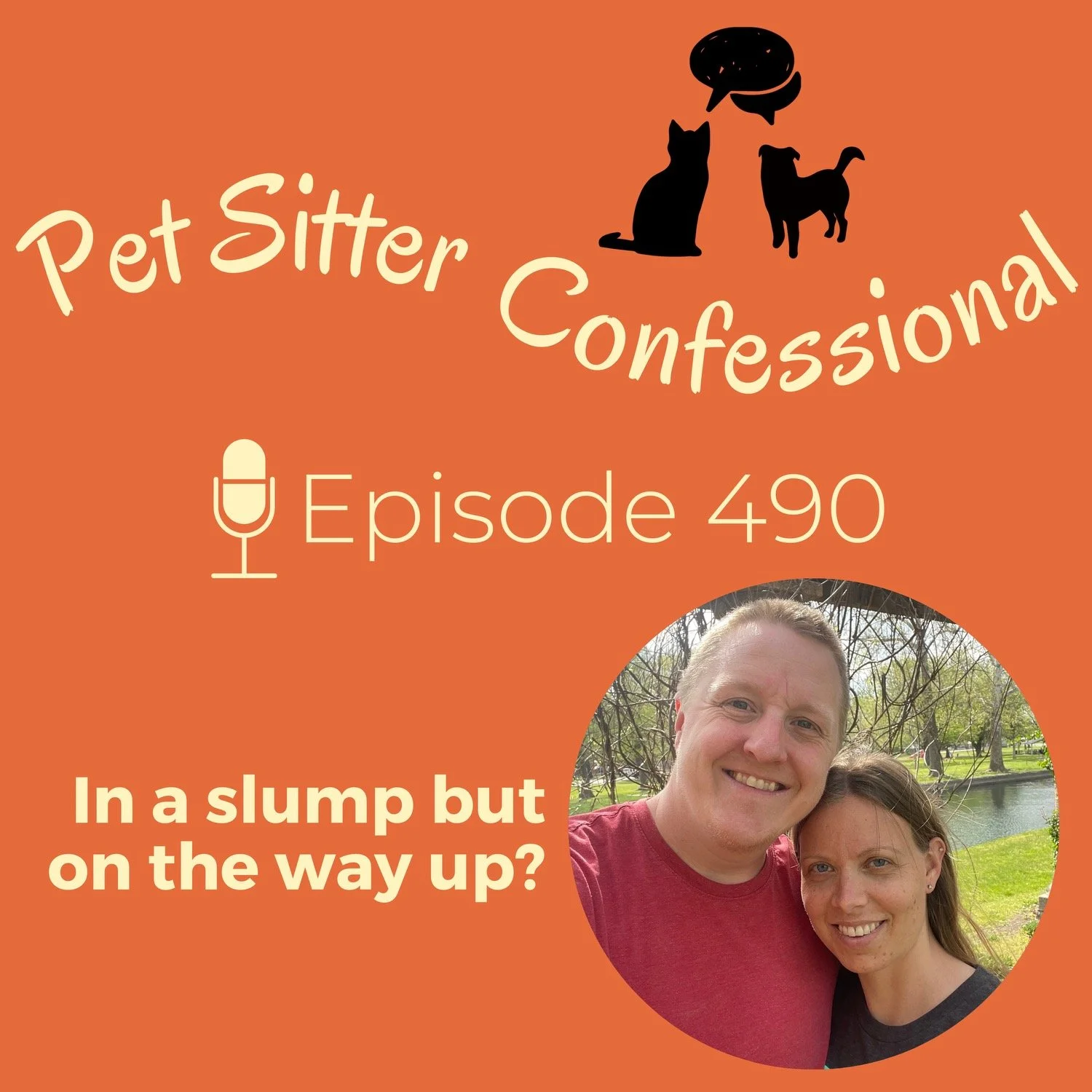322: No Such Thing as a No Risk Niche
Brought to you by Pet Sitters Associates. Use ‘Confessional’ at checkout
Summary
What does it mean to find a niche in your business? From services to clients, there are a variety of ways to target your business. While it does have benefits, it can come with risks you have to assess. We share the potential pitfalls that niching down can bring to your and your business. We also discuss how to overcome those and why finding your niche is so powerful. Then, Natasha O’Banion answers, “How do I hire seasonal help for the Holidays?”
Main topics:
What does it mean to niche down?
Benefits
Risks
Weighing them for yourself
Ask a Biz Coach
Main takeaway: Want to niche down to only care for Dachshunds? Do you know the benefits and risks?
Links
Check out Gusto: https://gusto.com/d/collin1453
Pet Sitters Associates: use ‘Confessional’ at checkout
ProTrainings: For 10% off any of their courses, use CPR-petsitterconfessional
Give us a call! (636) 364-8260
Follow us on: Instagram, Facebook, Twitter
Subscribe on iTunes, Spotify, Google, Stitcher, & TuneIn
Email us at: feedback@petsitterconfessional.com
A VERY ROUGH TRANSCRIPT OF THE EPISODE
Provided by otter.ai
SUMMARY KEYWORDS
niching, clients, pet, pet sitter, pet sitters, dachshunds, knowledge, resources, holiday, people, support, onboarding, business, adapt, lose, risk, generalist, temperatures, seasonal, finding
SPEAKERS
Meghan, Collin, Natasha
Meghan 00:10
Hello, I'm Meghan. I'm Collin. And this is Pet Sitter confessional and open and honest discussion about life as a pet sitter.
Collin 00:18
Hello, and thank you to pet sitters associates and our amazing Patreon members for supporting today's show. We actually have our first Friday monthly meetup for our Patreon supporters at the Great Dane level this Friday, every month, we gather to encourage one another and have an amazing time. A lot has been happening this past week. And so for those pet sitters in Florida, and all along the east coast, our thoughts and prayers go out to you as you recover from this, there's not a whole lot that we can say right now to help make the situation any better. But please know that we are here to support you. And if there's anything that we can do, please let us know. We have heard that the IRS has actually extended the tax filing deadline to like mid February or something. So at least that should help take a little bit of mental burden off of your plate. So you don't have one more thing to worry about right now. The pet sitters international conference actually just wrapped up in Ohio this weekend. And I know that people were having a wonderful time. So if you did manage to attend, we'd love to hear what your thoughts on it and what your biggest takeaway was. Today, we're talking about niching. Down and how it brings inherent risks to you and your business. But how ultimately, it's totally worth it. So what is dishing down niching down is finding a specific thing that your business wants to focus on. It could be a specific breed specific service, maybe a particular particular type of service or way of conducting a visit or a particular kind of client. And this is absolutely key. Whenever we think of who our avatar is for our client that is technically niching down. So you could think niching down into millennials that have no kids but have to Goldendoodles another niche could be a retired couple who travels extensively. Whatever it is, finding a niche in your business allows you to do a lot of things. And we do have to take a step back and recognize that there is kind of this mesh between avatar and niching. Down niching down is the process by defining the specialty service or business or type of client that you want to interact with and work with. The Avatar is now describing how am I going to message to this person I need to describe who that person is. So I know how to talk with them. And that in and of itself. Again, it could be the process of niching down maybe you want to focus on a particular breed or a particular type of human client, that you want to put your business behind and focus on whatever it is niching down helps you raise your prices, focus your services and become an expert in your field. And that last one is so critical. Maybe it's never happened to you. But I know it has for us for clients who haven't really filled out all of our forms and we walk in and they start talking about a disease or discussion that we have never heard of. And we haven't had time to look into that or understand more of that knowledge. Or maybe it's a particular breed that you've never encountered before. niching down means that we take our skills, and we focus them on a small subset of all of the possibilities out there. And yes, this does mean we're able to raise our prices because of the specialty and the background and the knowledge and expertise that we bring to our clients. In biology. Finding a niche is an organisms way of avoiding competition for scarce resources. If an organism is able to find a food resource, or habitat that is not currently being utilized by others in its community, it will specialize to make the most out of those resources and thrive. This ensures its survival and limits the competition it has for those resources. Now in business, especially dog walking and pet care, there's actually an over an abundance of resources so so why should we bother finding our own niche at all? Well, it helps make sure our business is focused and is operating more efficiently. But it does come with some risk. You see in the process of that niching down in that adaptation process, a species will actually undergo quite a lot of death of individuals before it lands on that right combination of resources and habitats and utilization. Finding a niche can be painful, especially if we are unsure if there are enough resources. So think clients here in our particular instance, to support us, the more specific the niche, the fewer clients are out there to fill it. But remember with specialization comes higher prices. So there is that balance. And that balance is what we need to find that balance between specialization higher prices and generalization and typically lower prices, that's for us to set and maintain for what's going to work best for us, and the balance that our community has to provide. And that is where this risk comes in. We have to be the ones to judge whether a niche is large enough to support us financially, you know, your community go out, you can do some market research, get hooked up with a business bureau talk with other business owners drive the area, and see if you can determine is this community is my service area able to support this niche that I'd like to go into, it's better to do this ahead of time than try and pour all of your eggs into one basket only to look up and find Oh, there's actually not enough resources here or clients to support the kind of niche that I would like to run. And then you would have to bounce it back out to being more of a generalist to support your business. The second risk that niching down does to us is that it comes with reducing the breadth of our knowledge and ability. You see, as an organism specializes for a particular environment, it loses the ability to exist in other environments, a lot of the times, some dolphins have adapted to live in freshwater exclusively, losing the physiological ability to live in saltwater. This kind of thing is particularly true in extreme environments, like hot springs are tundras way out on the edges and niches of what's physically possible to survive it. Organisms that survive here have a limited range of temperatures that are optimal for them. So kind of nerding out on some biology here. This kind of specialization is called steno thermal steno, meaning narrow, thermo meaning temperature, other organisms would be considered more generalists and could survive in a wider range of temperatures. These are called URI thermal. So URI meaning wide thermal meaning temperature, but in those areas where they have a wider range of temperatures, there's a lot more competition between organisms than there are in the steno thermal or in those hot springs, or in the frozen tundra. See, who doesn't love biology, especially because we can apply a lot of this stuff to our business. See, this process of adapting to these narrow temperatures happens because all of the organisms available resources, and genetic material is now dedicated to helping it exist in that specific environment and that environment alone, it has lost the ability to do well in other environments. And again, this is true in our business, the more if we focus on a particular niche or service, or client, whatever that is, the more likely we are to lose knowledge and ability for other things. Think of it this way, those who have specialized deeply and have focused solely on cats and Cat's behavior, you don't have the time in your day, to work on staying up to date on everything going on with dogs and dog behavior. Sure, there's some overlaps. But there are definitely some specific cases that don't cross between those. There's just too much to know to stay on top of everything. So yes, as we become specialists, it inherently means that we limit our ability to work with anything outside of that specialty. And that's something that we have to ask ourselves, Am I okay with this, that you may be totally fine with this and that's great. We should be okay with becoming a specialist in a particular topic and embracing that. Others may struggle with that and still want to maintain a more generalist approach and having an understanding and knowledge of a large range of things. You know, it's the same thing when it comes to seeing a doctor. There's the general practitioner, that the family doctor, and then there aren't the specialists galore that fill in everything in between. We as a business need to decide if we are okay with that. And if it's something that we would like to do something that's good for everybody is pet business insurance. As pet care professionals, your clients trust you to care for their furry family members, pet sitters Associates is here to help. for over 20 years pet service Associates has provided 1000s of members with quality pet care insurance. If you work in the pet care industry or wanted to make your passion for pets into a profession. You can take your career to the next level with flexible coverage options, client connections and complete freedom and running your business. Learn why pet sitters Associates is the perfect fit for you and get a free quote today that pets it llc.com You can get a discount when joining by clicking membership, that sir confessional and then use the discount code confessional at checkout to get $10 off today. Check out the benefits of membership and insurance once again at Pet sit llc.com. Another risk niching down has is when the environment around us changes. So if an organism has adapted to a narrow range of food, temperature, resources, habitat tight and that habitat and environment begin to change, that species will either have to adapt or die out. And this has been happening for as long as the Earth has been around but it's a scary process. When we think about our businesses To adapt, or die out, it's not exactly something we like to think about or want to face, which is why it is so critical to always be learning and having our finger on the pulse of our community, the economy and the needs of our clients. Running a business is definitely not a set it and forget it kind of endeavor, we must always try new things. And adapting to things as they come about COVID taught us that every kind of downturn or the recession that we are currently in teaches us that if we don't look up, look around, stay in the know, of how our clients behaviors, attitudes, perceptions are changing how financial systems are changing, or how we ourselves are changing, if we don't stay aware of that, we'll look up one day and find ourselves irrelevant. See, niching down gives us a lot of power in our business. It allows us to serve a small subset of clients extremely well and, and get paid well for it. It helps us better to target and manage our messaging and advertising and gets us connected with the clients who we actually want to work with and actually want to work with us. But we have to realize and we we must realize that it comes with risks that we have to either accept it or not. See, there's the risk of losing out on our abilities that we may have. Because we focus on one thing, which means we're going to inherently saying no to something else. And we have to realize that we must constantly be adapting and changing in small new ways or risk losing our business if everything changes around us. Ultimately, though, the process of niching down the pros outweigh the cons. And so let's let's put all this together. Let's say we want to niche down into focusing on toxins. Why toxins? Well, we just happen to have the best one in the world, Kobe. So let's say we want to focus on only serving dachshunds, what are some what are the pros that this brings? And what are some of the risks that we need to assess by niching down into dachshunds, you immediately become better at messaging to them and connecting with those clients, you immediately start specializing in them based on your knowledge from puppy to geriatric dogs at you, you start looking into all of their diseases that can come up treatment possibilities, you get connected with other specialists with other vets that have extensive experience and knowledge. With dachshunds, you get into dachshund owner circles, so you were easier to network in between those. And all this brings with it your specialty and expertise, which you are now able to raise your prices higher than you were previously. Now some of the risks that you have to take into account as you delve into the diseases and treatments and special requirements that toxins have, you lose knowledge that you would have carried on Labradors or Dobermans, or whatever else you have on your list of things, that you you lose that knowledge because you're so focused on dachshunds. Additionally, you may run the risk of there not being enough dachshunds, and dachshund owners in your community to sustain your business you lose out on that resource is going to keep coming back to you. But if we look at your community, if you say, Oh, well, my, my community is 100,000 people, 20,000 people, you know, 900,000, people, whatever, you know that statistically, not all of them have toxins, so you have just cut out smaller piece of the pie. Now, again, we've talked about the benefits, the risks are again, you might not have enough there to support you in that. Additionally, you lose that knowledge that you would have had for others. And then thirdly, as the world begins to change, let's say dachshunds become less popular, but you don't notice that because you're only focused on what you're doing. The environment has now changed to where that resource is extremely scarce. Or the the need for that just completely goes away. And you are so nice and so specialized, that you can't adapt and go and change other to other things. Which is why as we mentioned, we have to always be learning and looking and having our polls on that change around us. What does finding a niche look like to you? Have you managed to do that and what is your experience with that process?
Collin 14:21
We'd love to hear from you and hear your opinion on whether people should niche down or remain a generalist. On this week's Ask a pet biz coach with Natasha obey and she answers the question, how do I handle seasonal help with the holidays approaching?
Natasha 14:36
I love seasonal help. I when I was a pet sitter, I was like take what you can get when I in my membership group right now and they were like, Oh, well they are only going to be home from school for the holidays. Various a handful of clients who know and expect their seasonal buddies with you. If you have a let's say a college student who comes home for the holidays from college. They have four years to do so Your recurring clients will always remember Oh, Collins home from college, oh, we're gonna see him when I'm out of town they like buy in to the family. And they know that you have seasonal workers, they don't mind, you want to paint the picture from the very beginning that you were in team collaboration. Even if you're a solo player, right now, team collaboration all year long, right? Starting January all year long. So then when you get to the holidays, and you have an influx, when you're hiring, maybe a stay at home mom or a teacher that's on spring break, or a college student, your clients already expecting that anyone is going to come. And then don't forget that pet sitting is a start and stop service, they're hiring you for five days, once those five days are over, and they come back, they are liable to get whoever else is on your team. Make sure you're creating that culture, because that allows you to grow and doesn't allow the client to think like, oh, I'm only going to get a Natasha every single year. So I don't see you all year long. But you pop in in November for your holiday. And then you pop back spring break for your holiday and you think it's gonna be the same person, especially some of your listing to make sure you're explaining that in the beginning. So you can keep growing. Please guys, do not close your doors as much as possible. Leave them open, leave them open, take all the seasonal work you can possibly get you onboard them the same, you treat them the same, you just know they're only going to be with you for three or four months. And they are going to take the drop in you know, holiday clients who are coming in for Thanksgiving, you're never going to see him again. Give your seasonal staff to your petsitting clients, give your dog walking clients to your full time workers who are typically there every single day, but your seasonal clients give them seasonal staff. It's literally the same thing. Yeah,
Collin 16:44
I think baby will make be concerned about the cost and time and effort it takes to onboard people. So they may be a little hesitant to onboard people who are just going to be with them for a short period of time. Do you have any recommendations for how to maybe make that process smoother or more efficient when we're onboarding people so that it doesn't take our full length of time? Or should we make sure we invest that same amount of effort?
Natasha 17:08
Yeah, no, we need to automate that whole process, you should be onboarding someone literally within three to four days, it's only should cost you What $35 For a background check, it'll cost you an extra $35 and a couple T shirts, or maybe a hat, right. If you're living in an area where it's winter, you may just give them a hat and let them wear whatever they want. It should be costing you, you know, 6070 bucks to onboard someone where you're going to make that money back with petsitting anyway, but you want to make sure using a system like gussto, where you can literally send your staff, the email, and all you're doing is typing an email. And then they fill in all the paperwork immediately with gusto. It's completely automated, you're filling in the email on your Anki track background, and it's all coming to them to do the background check. So onboarding, someone literally should only take first of all, the initial paperwork should be about 10 minutes, like at max should be about 10 minutes to do that. And then if you want them to go through the training process, that should be three days shadowing, and you should have some kind of training videos, if you want to use maybe fetch fine as a great resource. All my pet clients are creating their own coaching and training programs for their clients. I mean for their onboarding staff. So if you had automated all that, how to do body language, how to provide peace of mind how to make a post, walk, visit report, all those initial onboarding, how to use the proper equipment, you're not using any of your time, it cumbersome when you personally have to go out into the field and explain all the body language that they're gonna possibly encounter. All the ways or at a report all the ways to use all nine pieces of equipment. You know, there's ways for you to scale that process down where you're like, Listen, go shadow, someone in the field, we've already watched, attend onboarding videos, go shadow somebody for three days, we're going to test you and you're good to go. If someone does not understand equipment, and the first day is not going to work, guys do not force staff into this business, if they're not going to use equipment right away is not going to work. If they cannot juggle working an app, and like holding a leash and writing your report is not going to work. I find that we try to force staff in where they just don't fit. Like if they're not picking it up pretty intense instantaneous. Do not move forward with them. Yeah, they're not gonna be able to work individually is going to be babysitting them the whole time.
19:34
And then it is super costly to use for sure.
Natasha 19:37
And then you want to create your center network. So what I say is throughout the year when people are like, Hey, I got a better job. I'm going to be going to school or I'm taking my real career that I've been looking for the whole time. Perfect. I'm so happy for you. Do you want to join our super network? That means when we have open shifts or holiday shifts, would you be able to jump in if you want to make extra income? They're like Hell yeah, I don't want to who's hanging out with the pets? But yeah, I want to take my full time career. But if you want to call me for Christmas, Hanukkah, New Year's tell you I'll come do it. So now you're creating a 25 plus person sitter network. When people say, Oh, how do I handle call outs and all that you have to have a certain network. Don't waste all that training you did with someone by just letting them go to their new job. Invite them to stay on your center network on call and they'll be happy to do so.
Collin 20:32
If you'd like to join the tortious monthly membership group, use the code PSC 15 for 20% off. We want to thank our sponsor pet sitters associates and our wonderful patrons for supporting today's show. And we want to thank you so, so much for listening and for contributing and for all that you give to the wider petsitting community you helped make this place such a wonderful place to be

